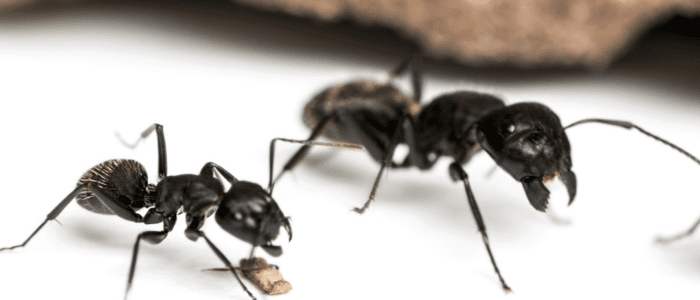March Of The Ants
Ants are much more than a minor nuisance; they are fascinating creatures with complex societies and significant roles in the ecosystem. In Westchester, New York, these industrious insects can often be found marching across sidewalks, infiltrating kitchens, and constructing intricate nests. Understanding the most common ant species in the region is essential for managing their presence and appreciating their ecological contributions. This blog post will introduce you to some of the ants you might encounter in Westchester, explain their behaviors, and offer tips for coexisting with them.
The Intriguing World of Ants
Ants are social insects that live in large colonies, often comprising thousands of individuals. These colonies are highly organized, with specific roles assigned to different types of ants. Workers forage for food, soldiers defend the nest, and queens focus on reproduction. This division of labor allows ants to thrive in various environments, including the diverse landscapes of Westchester, NY.
Ants communicate through the use of pheromones, chemical signals that convey messages about food sources, threats, and other important information. This chemical language enables them to work together efficiently and adapt to changing conditions. Their ability to collaborate and problem-solve makes them one of the most successful groups of insects on the planet.
In Westchester, a variety of ant species can be found, each with its unique characteristics and habits. Identifying these species and understanding their behaviors can help homeowners and businesses manage ant populations effectively.
Meet the Carpenter Ants
po0o,
These ants are particularly attracted to moist or decaying wood, making homes and buildings with water leaks or poor ventilation prime targets. To prevent infestations, it’s crucial to address any moisture problems and keep wood structures well-maintained.
Carpenter ants are most active at night when they forage for food. They have a varied diet, consuming proteins, sugars, and even other insects. If you spot large black ants in your home, especially around wooden areas, it may be time to investigate further and take preventive action.
Little Black Ants, Big Problems
Another common ant species in Westchester is the little black ant. These small, dark-colored ants are often seen trailing across kitchen counters or invading pantry shelves in search of food. While they are not as destructive as carpenter ants, they can become a persistent nuisance.
Little black ants form large colonies, sometimes with multiple queens, which allows them to reproduce rapidly and spread throughout an area. They are attracted to sweet and greasy foods, so keeping kitchens clean and storing food in airtight containers can help deter them.
Unlike some other ant species, little black ants are relatively easy to control with bait stations or insecticide treatments. However, it’s essential to find and eliminate their nests to achieve long-term success in managing their population.
Pavement Ants on the Move
Pavement ants are aptly named for their tendency to create nests under sidewalks, driveways, and building foundations. These small, reddish-brown ants are another common sight in Westchester, often seen foraging in large groups.
These ants feed on a wide range of foods, including seeds, insects, and human food scraps. They are known for their aggressive behavior towards other ant species, often engaging in battles over territory and resources.
While pavement ants are not as destructive as carpenter ants, their nests can cause issues with paving and landscaping. Sealing cracks and crevices in concrete and brickwork can help prevent them from establishing colonies near your home.
Odorous House Ants and Their Pungent Aroma
Odorous house ants, also known as sugar ants, are small ants that emit a distinct odor when crushed. These ants are often found indoors, especially in kitchens and bathrooms, where they search for food and water.
These ants form large colonies with multiple queens, allowing them to quickly colonize new areas. They prefer sweet foods but will also consume proteins and fats. Like little black ants, odorous house ants can often be managed with bait stations, but locating and eliminating their nests is vital for effective control.
To minimize the risk of infestation, it’s important to keep surfaces clean and free of food debris and to repair any plumbing leaks that may provide a water source for these ants.
The Elusive Pharaoh Ants
Pharaoh ants are a challenging species to deal with due to their ability to form supercolonies with numerous queens. These small, yellowish ants are notorious for infesting hospitals, food service establishments, and residential buildings.
They feed on a wide variety of foods, including sweets, proteins, and grease, making them adaptable to many environments. Pharaoh ants are known to exploit tiny cracks and crevices to establish nests, making them difficult to control with traditional methods.
When dealing with pharaoh ants, it’s essential to use bait treatments specifically designed for this species. Contact insecticides can cause colonies to split and spread, worsening the infestation.
Tips for Managing Ant Populations
While ants play a crucial role in the ecosystem, they can become problematic when they invade homes and businesses. The following tips can help you manage ant populations and prevent infestations:
- Identify the species: Knowing which ant species you are dealing with can help determine the best control methods and prevent future infestations.
- Eliminate food sources: Keep kitchens clean, store food in airtight containers, and promptly clean up spills to reduce the attraction for ants.
- Seal entry points: Inspect your home for gaps, cracks, and crevices where ants may enter, and seal them with caulk or other appropriate materials.
- Address moisture issues: Repair leaky pipes, improve ventilation, and remove standing water to discourage ants from nesting in your home.
- Use bait treatments: For many ant species, bait treatments are more effective than contact insecticides, as they target the entire colony rather than just individual ants.
When to Call in the Professionals
In some cases, ant infestations may be too challenging to manage on your own. Professional pest control services have the knowledge, experience, and tools necessary to identify and eliminate ant colonies effectively.
If you have tried various control methods without success, or if you are dealing with a particularly stubborn species like pharaoh ants, it may be time to consult a professional. They can assess your situation and recommend tailored solutions to address your specific needs.
Appreciating Ants’ Role in the Ecosystem
While ants can be a nuisance in our homes, it’s essential to recognize their valuable role in the environment. Ants contribute to soil aeration, seed dispersal, and the regulation of other insect populations. By understanding and managing their presence, we can coexist with these fascinating creatures and appreciate their contributions to the natural world.
The diverse ant species in Westchester, NY, present both challenges and opportunities for homeowners and businesses. By understanding their behaviors and employing effective management strategies, you can coexist with these industrious insects while maintaining a comfortable and ant-free living environment.
For further assistance with ant management, consider reaching out to a local pest control professional to discuss your specific needs and explore tailored solutions. By staying informed and proactive, you can enjoy the benefits of a harmonious relationship with the ants of Westchester.


Comments are closed.